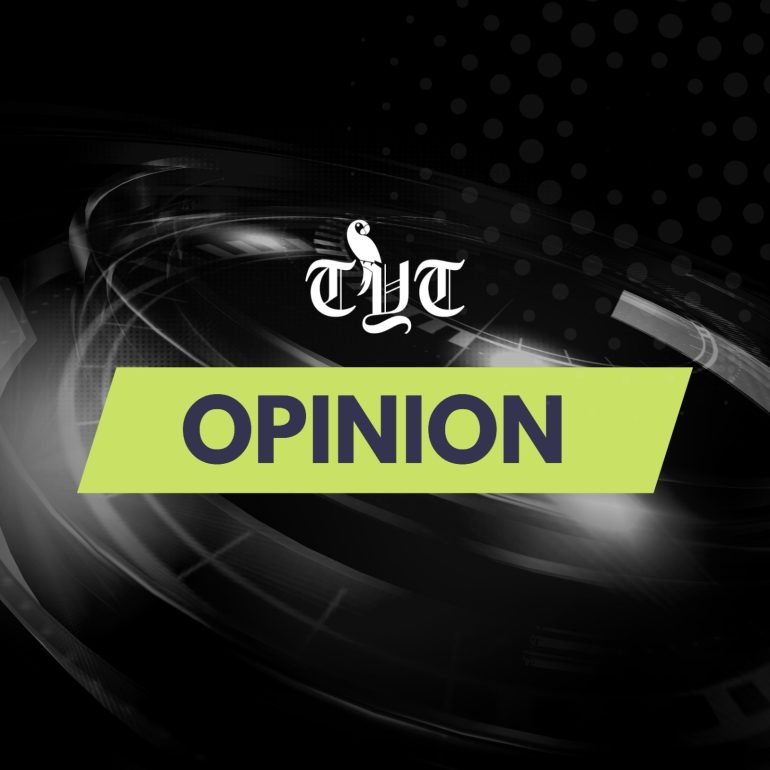OPINION
August 7, 2025
By Bolarinwa Ayoola
I recently came across a series of tweets made on the X platform by one Dr. Ope Banwo, which focused on what he termed Igbophobia. In one of these tweets, the author made separate posts titled “Who is Afraid of Igbos” and “Lagos is No Man’s Land, but Igbos Are Not Guests in Lagos but Stakeholders.”
In his tweets, Banwo claims that it is unfair to refer to Igbos in Lagos as guests. Rather, he argues, they should be seen as stakeholders because they own businesses and properties in Lagos. He also pointed to the intermarriages between Igbos and Yorubas, which have produced children carrying both Ibo and Yoruba heritages. He further stated that there are Igbos born in Lagos who have lived all their lives in the city, and for that reason, they should be accorded the status of stakeholders rather than guests.
Before I proceed further to comment on Banwo’s assertions, I would like Nigerians to understand that there is no officially recognized tribe called Igbo in the historical sense of Nigeria. The word Igbo began to replace the original term Ibo in national discourse around the early 1970s, specifically in 1972, for reasons that remain unclear to many Nigerians. However, recent developments raise the suspicion that the change in nomenclature could have been driven by a desire to mimic the ancient Yoruba settlement known as Ugbo.
Ugbo Kingdom is located in modern-day Ondo State, where Oba Obateru Akinruntan, founder of Obat Oil, is the current monarch. While Igbo might appear to be a corrupted form of Ugbo, the two sound quite different phonetically.
Archival documents preserved in the National Archives until 1972 consistently refer to the Ibo people of Eastern Nigeria. Therefore, the change from Ibo to Igbo could be interpreted as a deliberate attempt to sow confusion and distort Yoruba history. It is, perhaps, not surprising that some Ibo revisionists have falsely claimed that the Ibo people originated from Ife and were later driven out by the Yoruba civilization.
Since it has become increasingly common for some liberal Yoruba individuals to make statements or take actions that are clearly detrimental to the interests of the Yoruba people, it is necessary to put such individuals in proper perspective. Although Yoruba land belongs to all Yoruba people, it is evident that certain liberal elements among us are indifferent to the future of the land and its people.
They seem unconcerned if Yoruba people become displaced from their ancestral lands or politically subjugated within their own homeland. It is worth noting that Dr. Banwo is not the first Yoruba person to fall into the category of individuals who publicly defend or support the Ibo people, often in ways that undermine Yoruba interests. Many such persons do so for selfish reasons, whether political, personal, religious, or economic. Some are motivated by relationships, including marriage to an Ibo spouse, while others act out of personal grudges against fellow Yoruba individuals.
While these individuals position themselves against Yoruba interests, they fail to recognize the long-term implications of their actions. Our ancestors wisely captured this danger in a proverb that says, “Eepa n pa ara re, o ni ohun n pa aja,” meaning the worm destroying the dog does not realize that the dog’s death is also its own end. These people are the proverbial worm, destroying its own host without understanding the consequences.
Lately, I have come to liken such individuals to Orban, a citizen of Constantinople and a military hardware inventor who played a key role in the fall of his own city. In 1453, Sultan Mehmed II laid siege to the Byzantine capital, which had withstood external invasions for over a thousand years due to its formidable walls.
Many Ottoman armies had tried and failed to take the city because the walls offered excellent protection and strategic defense. However, Orban chose to support the Ottoman side by building massive ballistic weapons for Sultan Mehmed. These weapons eventually breached the city’s defenses, resulting in the fall of Constantinople and the end of the Byzantine Empire.
Yoruba land is an ancient civilization, deeply cherished by its people. It is crucial that we remain vigilant and protect it from individuals, like Orban, who may inadvertently become instruments of internal subversion. These persons could serve as the metaphorical Trojan horse, opening the gates to erosion of our cultural and political sovereignty.
The Yoruba are a people with a distinct history and clearly defined ancestral territories. We must no longer tolerate those who aim to undermine Yoruba unity and heritage in favour of their Ibo associates. It is essential that such individuals understand that Yoruba land and its interests will never be sacrificed to appease external groups.
The Ibo people will remain non-indigenous to Yoruba land and cannot claim stakeholder status, even in Lagos. While the Ibo people enjoy Nigerian citizenship and all the rights that come with it, neither legislation nor intimidation will compel Yoruba people to surrender their land or political authority to internal migrants or political opportunists who show blatant disregard for their host communities.
